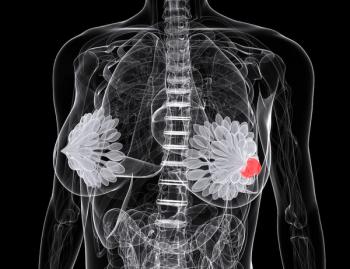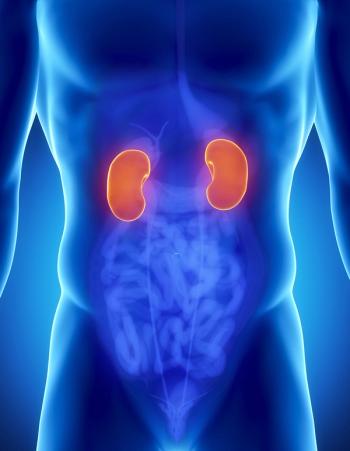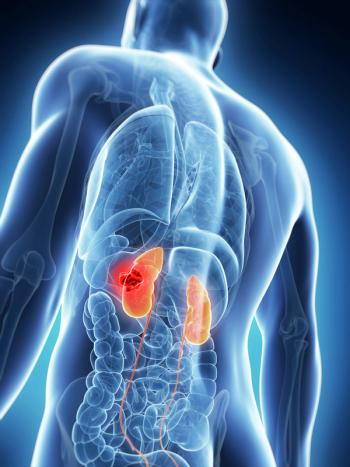
Alpelisib combined with fulvestrant represents a viable treatment option for patients with hormone receptor–positive, HER2-negative advanced breast cancer, regardless of mutation status.

Your AI-Trained Oncology Knowledge Connection!


Alpelisib combined with fulvestrant represents a viable treatment option for patients with hormone receptor–positive, HER2-negative advanced breast cancer, regardless of mutation status.

Similar overall survival, better patient-reported outcomes, and fewer adverse effects were observed when patients were treated with 177Lu-PSMA-617 vs cabazitaxel in metastatic castration-resistant prostate cancer.

The phase 2 PILOT study showed encouraging overall response rates with lisacabtagene maraleucel in the second-line or beyond setting among patients with relapsed/refractory large B-cell lymphoma who did not receive hematopoietic stem cell transplantation.

Transplant following lenalidomide, bortezomib, and dexamethasone with lenalidomide maintenance was superior to the treatment course without transplant, according to data at 2022 ASCO.

The phase 3 DESTINY-Breast04 trial using fam-trastuzumab deruxtecan-nxki showed a reduction in the risk of disease recurrence or death for patients with HER2-low, hormone receptor–positive metastatic breast cancer.

Superior efficacy was observed when patients with RAS wild–type metastatic colorectal cancer were treated with panitumumab plus chemotherapy vs bevacizumab in the first-line setting.

Across 3 clinical trials, investigators continued to observe durable responses with larotrectinib, which showed the importance of NTRK gene fusion testing in patients with various cancer types.

Elderly frail patients with relapsed/refractory multiple myeloma treated with ixazomib plus daratumumab experienced favorable response rates.

Data from the phase 2 IFM 2018-04 trial support the use of daratumumab, carfilzomib, lenalidomide, and dexamethasone coupled with tandem autologous stem cell transplant in eligible patients with high-risk multiple myeloma.

Lenvatinib plus pembrolizumab decreased the risk of disease progression or death on second-line therapy by 50% compared with sunitinib in the phase 3 CLEAR trial.

Induction/consolidation daratumumab, lenalidomide, bortezomib and dexamethasone (RVd) outperformed RVd alone when it came to minimal residual disease and progression-free survival in patients with newly diagnosed, transplant-eligible myeloma.

A Claudin18.2–specific CAR T-cell therapy has shown promise in the treatment of patients with heavily pretreated advanced gastric and pancreatic adenocarcinoma whose disease expresses the marker.

Patritumab deruxtecan induced positive efficacy, according to the phase 1/2 U31402-J101 trial in patients with HER3-expressing metastatic breast cancer or metastatic triple-negative breast cancer.

At 2022 ASCO, final survival data from the phase 3 PALOMA-2 trial confirmed similar survival between palbociclib plus letrozole and letrozole alone.

Data on next line of therapy from the phase 3 Study 309/KEYNOTE-775 trial emphasized the benefit of lenvatinib plus pembrolizumab for advanced endometrial cancer.

Ribociclib plus endocrine therapy for hormone receptor–positive, HER2-negative advanced breast cancer following progression on a CDK4/6 inhibitor bests matched placebo.

Epcoritamab plus rituximab and lenalidomide yielded a 100% response rate in patients with relapsed or refractory follicular lymphoma.

An acceptable safety reported at a follow-up analysis of the phase 3 DESTINY-Breast03 study has reinforced use of fam-trastuzumab deruxtecan-nxki for patients with HER2-positive unresectable or metastatic breast cancer

A manageable safety profile and good clinical activity were observed with toripalimab in Chinese patients with urothelial carcinoma.

An exploratory analysis of the JAVELIN Bladder 100 study indicated long-term overall survival benefit for patients with advanced urothelial carcinoma who received avelumab maintenace, without regard for treatment given in the second-line setting.

High response rates were noted in a phase 1/2 trial of the bispecific antibody epcoritamab to treat first-line, high-risk diffuse large B-cell lymphoma.

Chances of reaching complete remission and minimal residual disease negativity were greater with the addition of inotuzumab to hyper-CVAD with sequential blinatumomab in patients with Philadelphia chromosome–negative B-cell acute lymphoblastic lymphoma.

Results from the phase 3 AGILE study show patients with IDH1-mutant acute myeloid leukemia had improved outcomes when treated with ivosidenib plus azacitidine vs placebo plus azacitidine.

Combining magrolimab with azacitidine led to manageable anemia in patients with higher-risk myelodysplastic syndrome and acute myeloid leukemia.

At approximately 5 years of follow-up, findings from the phase 3 ELEVATE-TN study show that treatment outcomes are more favorable with acalabrutinib with or without obinutuzumab compared with obinutuzumab and chlorambucil in treatment-naïve chronic lymphocytic leukemia.

Compared with chemotherapy, sacituzumab govitecan led to better progression-free survival outcomes in patients with hormone receptor–positive, HER2-negative breast cancer.

Phase 2 data indicate promising responses are possible with fixed-duration glofitamab in patients with heavily pretreated, highly refractory large B-cell lymphoma.

A subgroup analysis of the phase 3 MAIA trial showed rapid, deep, and durable responses with daratumumab plus lenalidomide and dexamethasone vs standard therapy for newly diagnosed multiple myeloma across patient subgroups.

Amrita Y. Krishnan, MD, spoke about the use of teclistamab vs real-world data in patients with relapsed/refractory multiple myeloma.

Results of the phase 3 EVEREST trial show adjuvant everolimus improved recurrence-free survival for patients with very high-risk renal cell carcinoma.